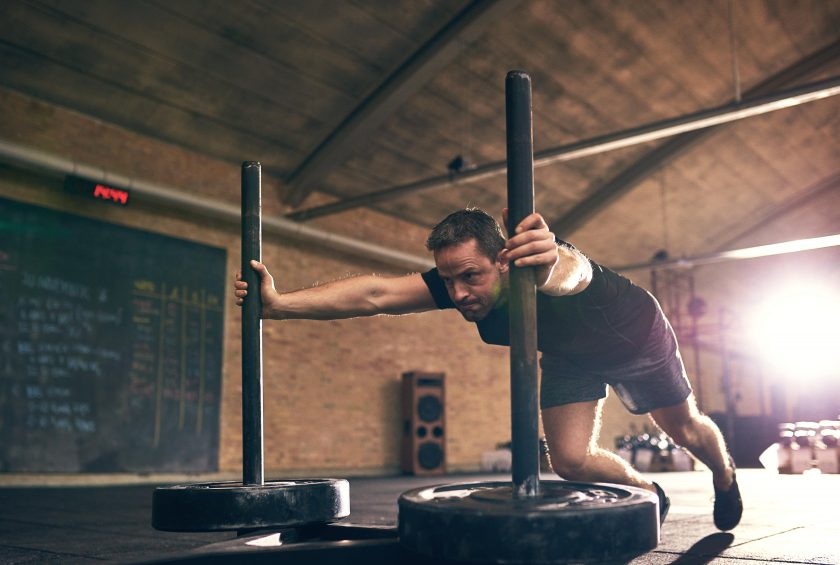
Power: Is It Different From Strength? Do I Need To Work On It?
But First, What is Power?
- Simply put in the real world, power is the product of the force (strength) and how fast you can produce it.
- In terms of pure physics, power is defined as: (Cross et al., 2015)
- The rate the work (movement) is performed or the product of the force (strength) and how fast it is produced (velocity)
- Power = Work/Time = Force x Displacement/Time = Force x Velocity
Therefore, You Can Improve Power In Two Ways:
Get Stronger:
- A weak person (small amount of force) who moves quickly (velocity) isn’t powerful, but they’re fast (speed)
Get Faster:
- A strong person (high force) who moves slowly isn’t powerful either** because power is BOTH force and velocity dependent.
**But, a strong individual will produce more power under load (Cormie, 2011).
Power can be improved by improving one or both of the above elements.
- For example: increasing your squat from 100kg to 150kg, can allow you to produce more force.
- So instead of your power being: 100kg x1.5meters per second =150, You would now be: 150×1.5m/s = 225
How Do I Know Which One I Should Be Concentrating On?
You need to find someone who will take the time to listen to your needs and perform a thorough physical assessment.
- You also need someone who understands the specific demands of your activities, work or sport.
- You also need someone who understands your injury history and can build a program to strengthen your weaknesses AND focus on the aspect(s) of power you need work on.
- This is where a Physiotherapist with a proper understanding of strength & conditioning principles can be extremely valuable.
- A Physiotherapist could then provide you with a program as simple as a program at home 1-2 days a week with nothing but your body weight or a program as detailed as a full commercial gym 6 days a week.
Check out our Physiotherapists here!
Enough physics, what about sport ? Does This Mean I will Be Automaticaly Better at My Sport or Activity??
- We should also consider the skill of the movement e.g. sprinting, pitching, hitting. This is where your skills coach, S&C coach & physio should all work together & all understand your sport. Think back to the previous post about the neural aspects of strength.
- Having the physical qualities only means someone is capable of high power. We need to help them learn how to express this power in the field
*This is often why people “fail rehab” and why an experienced physio with an in depth understanding of these principles should be part of your team.
-
However, this doesn’t mean we should simulate sports in the gym. During rehab/training, we should develop qualities e.g. power and then have a phase for “conversion” or ideally, this happens during sport training (Plisk, 2000).
Hopefully that gives you a better understanding of power. If you are looking to improve your quality of life or perform better with your sport then feel free to book in with our team to make sure you have the best chance of achieving these goals by getting a thorough assessment and an individualised program.
Remember, to fully develop your power, you need to figure out which part of the equation you’re deficient in. Are you strong (high force) but slow? Are you weak, but fast? Could you improve both aspects? In this scenario, an experienced strength coach is imperative to help you walk the fine line between both qualities.
For more information on how Strength click here!!
To book an appointment click the button below!
Book an Appointment Now



